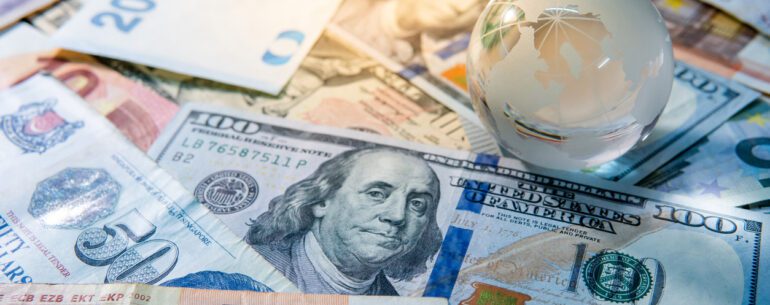By request, here is a list of books I mentioned on the BP podcast in the order of mention. Just in time for Christmas!
I’ve added notes and commentary on how the books changed my thinking. There’s also a lagniappe “test” question to challenge your own thinking.
If you had to skip a meal or a book, remember that nobody has ever said a meal changed their life. – Man Overseas
Poor Charlie’s Almanack: The Wit and Wisdom of Charles T. Munger
Poor Charlie’s Almanack was twice the cost of any book I’d ever bought, but also 2x more valuable.
Charlie Munger is the 94-year old billionaire right-hand man of Warren Buffet. He introduced the concept of “elementary worldly wisdom” as it relates to business and finance.
If you’re a student at all of human nature, psychology, or decision-making, you’ll enjoy this book. Many of Munger’s speeches are included, as well as his investing principles checklist.
My favorite components of his checklists are:
- Risk: Avoid dealing with people of questionable character
- Preparation: More important than the will to win is the will to prepare
- Intellectual Humility: Above all, never fool yourself, and remember that you are the easiest person to fool
- Decisiveness: Opportunity meeting the prepared mind: that’s the game
Challenge question: Are you just as happy for others’ success as your own? I’ve noticed people who didn’t play sports struggle more with this than those who did. If there’s jealousy in your psychological makeup—root it out.
Per Charlie Munger, “The idea of caring that someone is making money faster [than you] is one of the deadly sins. Envy is a really stupid sin because it’s the only one you couldn’t possibly have any fun at.”
Most of us are phenomenally wealthy by historical standards, but fail to realize it because everyone around us is wealthy too. Concern over relative status is a recipe for misery; comparing yourself to others will steal your joy.
Why would this book make a great Christmas gift?
It looks like a coffee table book. Plus, its high price might keep some people from buying it for themselves.
How to Win Friends and Influence People by Dale Carnegie
How to Win Friends and Influence People was published in 1936. We read old books because they’ve withstood the test of time. This book had a BIG impact on me.
How to Win Friends could serve as a how-to manual for character-building. Carnegie describes a person of character as someone who maintains self-control and forgives.
In modern parlance, the author encourages the reader to: get over yourself.
Humans are self-absorbed by nature. We spend most of our time focusing on ourselves: our emotions, our wounds, our fantasies.
One way to get over yourself is by developing your communication skills; dominate the listening in your interactions. Absorb yourself in the words and nonverbal cues of others while attuning yourself to their needs.
Carnegie believes “the deepest urge in human nature” is to feel important. You can satisfy a person’s urge by being “other-directed.” Let them talk about themselves, while you listen intently with genuine interest.
If you’re trying to influence or persuade someone, speak in terms of their interests. Allow them to come up with your ideas on their own. And never say I told you so. It’s unbecoming.
A good leader helps those on his or her team see themselves better than they are. Gives them something to aspire to. They express honest and sincere appreciation for people.
You’ll want to praise specifically. Criticize generally. In the digital age, better to praise by email and criticize verbally, albeit indirectly. Always save people from embarrassment.
Carnegie also encourages the reader to smile more. I’ve noticed people in Europe smile less than Americans, but we’re slowly catching up by smiling less and less.
My buddy and I have a theory: There’s an inverse correlation between the amount of formalized education one receives and the frequency with which they smile—especially among women. Correlation isn’t causation, of course, merely a theory based on our observations.
I’ve been guilty of smiling less as I get older. Let’s reverse the trend!
Challenge question: Can you look at a photo that you’re in and not look at yourself first?
Why would this book make a great Christmas gift?
After reading this book, you’ll wish everyone would read it. It makes you want to serve others. Winning more friends will be an added bonus!
Rich Dad, Poor Dad by Robert Kiyosaki
Rich Dad Poor Dad was one of the first books I read after college. It gave me a different way of viewing the world.
The sooner you grasp the principles in this book, the wealthier you’ll be. That’s because the book teaches you the difference between an asset and a liability—knowledge that will enable and motivate you to buy income-producing assets instead of liabilities.
Per Albert Einstein, “Compound interest is the eighth wonder of the world;” Charlie Munger added: “never interrupt it (compounding) unnecessarily.” You must first acquire assets for returns to begin compounding.
*Here’s an example of what buying an income-producing asset looks like:
You buy a rent house for $100,000 with 20% down payment ($20,000). Now let’s say your principal, interest, taxes and insurance (PITI) amount to $700/month. If you lease the house for $1000/mo., you have an asset that provides $300 in monthly cash flow ($1000/mo. gross rent less $700 PITI = $300/mo. in cash flow). Plus, your $20,000 in equity ($100,000 asset value less $80,000 you owe the bank) will grow as you pay down the principal (P) and/or the house appreciates in value; thus, you’re building wealth err…getting rich.
By contrast, the average car in America, as of May 2018, sells for $31,453. Your car is a liability which starts depreciating in value as soon as you drive it off the lot.
The author’s rich dad bought assets which put money in his pocket every month, which helped him to build wealth. His poor dad bought liabilities which took money out of his pocket every month.
Challenge question: Are you keeping up with the Jones’? Do you care? If you took the average car payment in the US of $523/month and invested it instead in a growth-stock mutual fund that earned 9-10% annually, you’d have $100,000 in 10 years.
Drive a car that’ll get you from point A to B safely. Because—news flash—nobody gives a shit what kind of car you drive.
Why is this book a great Christmas gift?
Rich Dad Poor Dad will teach you what you didn’t learn in school. Buy this book if you want more wealth and wisdom.
The Richest Man in Babylon by George Clason
At a job interview shortly after graduating from college, I asked the interviewer for book recommendations. He handed me The Richest Man in Babylon.
I was 22 years old. It couldn’t have come at a better time for me. Truly a life-changing book.
As mentioned on the BP podcast, The Richest Man in Babylon got me saving & investing a large portion of my income in real estate. It teaches the seven principles of saving & investing in narrative form. Perfect “stocking-stuffer” for all ages, but especially for those starting out in their careers.
Challenge question: Are you saving a sizable portion of your income automatically? If not, start now. I “retired” in my 30s because I saved & invested up to 80% of my income. For most people, that’s not realistic. If it’s not, then start by saving 10% per annum, then increase your savings 1% every year for the next 10 years.
Why is this book a great Christmas gift?
Great way to learn fundamentals of saving & investing in narrative form. Short, easy read. Suitable for all ages.
Shoe Dog by Phil Knight
Shoe Dog by Phil Knight is a memoir written by the creator of Nike. The story is a unique intersection of business, sports, and history, along with bonus Japanese culture! It reads like the smartest guy in the room is telling you his rags-to-riches story.
Knight came up with the idea for Blue Ribbon, later called Nike, while attending graduate school at Stanford. He and his former track coach at University of Oregon each put in $500 to get the company started.
By building relationships with mentors, developing a high aptitude for risk-taking and embracing the grind, Knight ultimately triumphed to become the man behind the swoosh.
He believed in hiring great people and letting them do their thing. He thought salesmen worked best when allowed to be themselves. That’s because as a former athlete, Knight cared only about results—something you’ll appreciate if you’ve ever worked for a non-athlete seemingly more concerned with looking good.
In 1984, Knight courted a college basketball player named Michael Jordan, who was taken 3rd overall in the NBA Draft. He was given a 5-year, $500,000 per year endorsement deal, which was unheard of at that time.
By the end of 1985, Air Jordans brought in over $100 million in revenue. Today, according to Business Insider, Michael Jordan is worth an estimated $1.7 billion, earning over $100 million per year in Nike royalties alone.
If “Be Like Mike” had never been uttered, and a swoosh wasn’t a thing, you’d think the Shoe Dog tale is made-up. It’s that good. There’s a page in the book where I (inadvertently) blurted out, “Oh my God”—huge smile on my face. I’ll be anxious to know how you react to the page I’m referring to.
Challenge question: When someone is condescending, how does it make you feel? Do you want to get back at them, or prove yourself worthy of their approval?
When someone acts like they’re better than you, that’s a “tell.” A tell that they are in fact not better than you.
We’ve all dealt with smug people who seem to have a perpetually upward tilt of their nose. Way I see it. You can allow the way they treated you to make you bitter. Or you can get revenge by not being that way yourself. There’s solace in knowing the person who treated you as lesser has issues you’ll never have to deal with.
Phil Knight met a British heiress to a chocolate fortune while traveling the world in his twenties. Her father forbade her to visit Knight, saying that a guy she met while traveling the world “would never amount to anything.”
Phil Knight is now worth an estimated $42 billion.
Why is this book a great Christmas gift?
Answering this question feels like the end of a job interview when the interviewer asks, “Why should we hire you?” And you want to say, “Hey Phuckface, have you not been paying attention the past 45 minutes?”
But seriously, I’ve gifted this book to my former teammates & friends who love sports. Not to mention Shoe Dog was on Bill Gates’ shortlist of favorite books of 2016.
*Remember to account for potential repairs & vacancies
**If you purchase a book using Amazon links provided, there will be a small commission paid to ManOverseas.com. Proceeds will be given back to readers & listeners of the podcast in the form of giveaways & prizes on Instagram. Thank you!




I’ve read two of those books years ago, will go out and get the other ones to read.
Great story as always
Thank you, I think you’ll enjoy!
I have a book rec for you. It’s not really in line with wealth per se, but it is related to goal setting and “getting over yourself”. Its called “Unf*ck Yourself” by Gary John Bishop. I’m curious to see what you think of it. Going to pick up some of these books. Thanks for the recommendations.
Hey Kish, I’ve heard of it – will check it out. My next post will be more Book Recommendations – one of them is excellent for getting unstuck.
Mating in Captivity (your last book rec) was a great read!
I will check these books out, I’m always looking for a new book. The Phil Knight will be a good one for my son. I love the challenge questions.
Thanks! Let me know how your son reacts to the “OMG” page in the book.